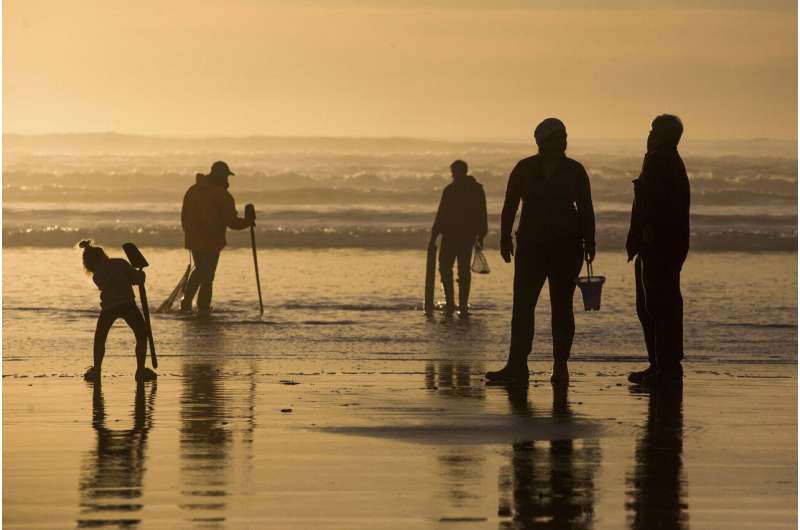
Oregon authorities have closed the state’s entire coastline to mussel harvesting due to an “unprecedented” outbreak of shellfish poisoning that has sickened at least 20 people.
They’ve also closed parts of the Oregon coast to harvesting razor clams, bay clams and oysters.
“We’ve had a paralytic shellfish poisoning event in Oregon that we have never seen in the state,” Matthew Hunter, shellfish program manager for the Oregon Department of Fish and Wildlife, said during a briefing on Friday. The outbreak’s unprecedented nature was due both to the number of species impacted and the number of people falling ill, he said.
Oregon’s Department of Fish and Wildlife and Department of Agriculture announced the new closures Thursday. Elevated levels of toxins were first detected in shellfish on the state’s central and north coasts on May 17, Hunter said.
State health officials are asking people who have harvested or eaten Oregon shellfish since May 13 to fill out a survey that’s meant to help investigators identify the cause of the outbreak and the number of people sickened.
Paralytic shellfish poisoning, or PSP, is caused by saxitoxin, a naturally occurring toxin produced by algae, according to the Oregon Health Authority. People who eat shellfish contaminated with high levels of saxitoxins usually start feeling ill within 30 to 60 minutes, the agency said. Symptoms include numbness of the mouth and lips, vomiting, diarrhea, and shortness of breath and irregular heartbeat in severe cases.
There is no antidote to PSP, according to the agency. Treatment for severe cases may require mechanical ventilators to help with breathing.
Authorities warn that cooking or freezing contaminated shellfish doesn’t kill the toxins and doesn’t make it safe to eat.
Officials in neighboring Washington have also closed the state’s Pacific coastline to the harvesting of shellfish, including mussels, clams, scallops and oysters, a shellfish safety map produced by the Washington State Department of Health showed.
Under the new restrictions out of Oregon, razor clam harvesting is closed along roughly 185 miles (298 kilometers) of coastline, from the central coast town of Yachats down to the California state line. Bay clam harvesting is closed along the north coast, from the Washington state line down about 105 miles (169 kilometers) to Cascade Head.
Agriculture officials have also closed commercial oyster harvesting in Netarts and Tillamook bays on the north coast of Oregon.
The Oregon Department of Agriculture says it will continue testing for shellfish toxins at least twice a month as tides and weather permit. Reopening an area closed for biotoxins requires two consecutive tests that show toxin levels are below a certain threshold, according to the agency.
© 2024 The Associated Press. All rights reserved. This material may not be published, broadcast, rewritten or redistributed without permission.
Citation:
Oregon officials close entire coast to mussel harvesting due to shellfish poisoning (2024, June 2)
retrieved 2 June 2024
from https://phys.org/news/2024-06-oregon-entire-coast-mussel-harvesting.html
This document is subject to copyright. Apart from any fair dealing for the purpose of private study or research, no
part may be reproduced without the written permission. The content is provided for information purposes only.







